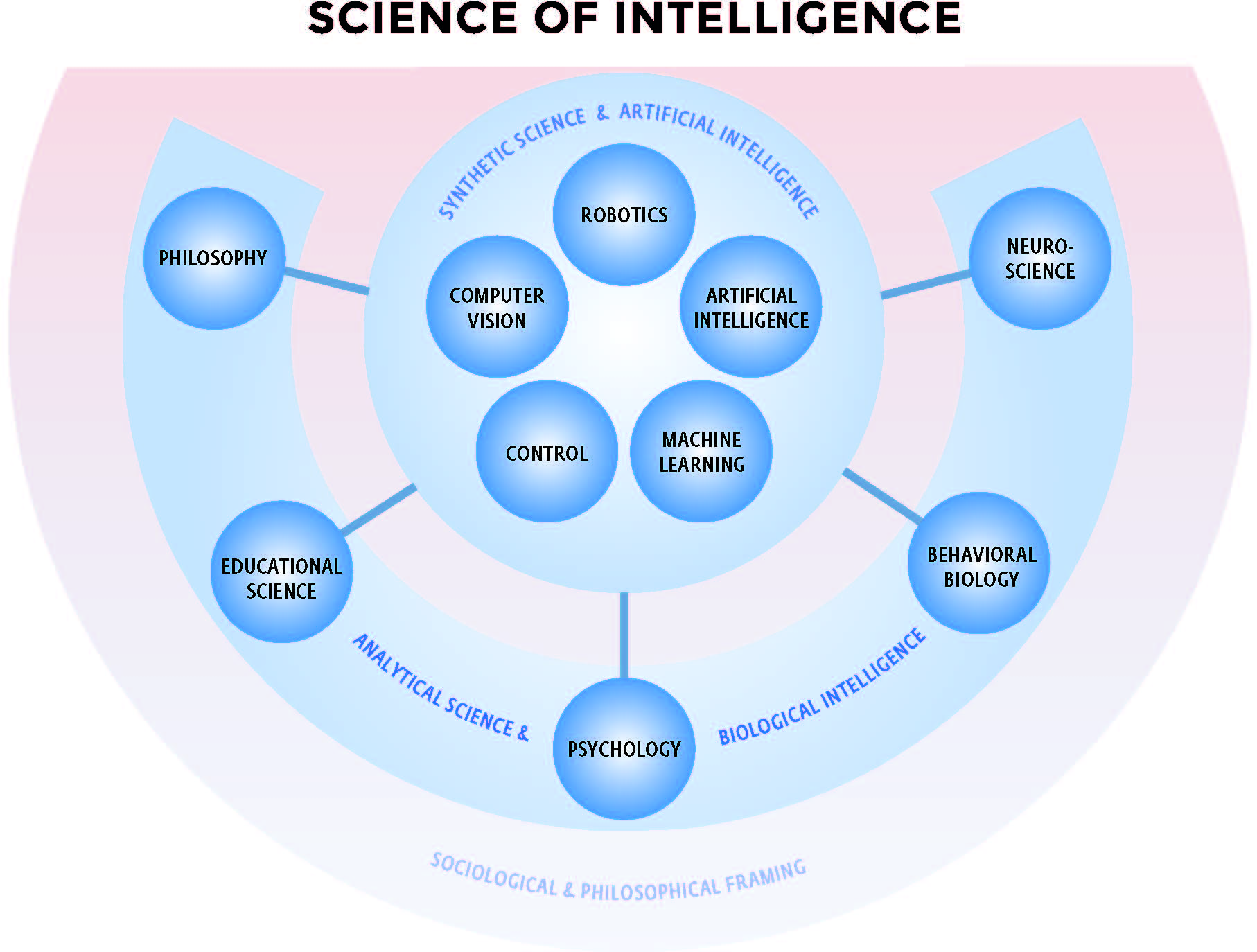|
|
Prof. Dr. Lars Lewejohann Freie Universität Berlin Institute of Animal Welfare, Animal Behavior Königsweg 67
|
Head of Unit German Centre for the Protection of Laboratory Animals (Bf3R) German Federal Institute for Risk Assessment (BfR) Diedersdorfer Weg 1 |
I studied Biology and Philosophy at the University of Muenster and finished my diploma thesis in 1999. Subject of the diploma thesis was the evaluation of housing conditions of laboratory mice from an animal's point of view using preference tests. In brief: If mice have the choice, they prefer enriched housing conditions and will even work (pressing a lever up to 16 times per entry) for the access to a more entertaining housing system.
In my PhD-project "Behavioral Phenotyping of Mice: Methods, Evaluation, and Appliance" I investigated BC1-RNA knockout mice by means of a battery of behavioral tests. Tests were carried out with different knockout lines in different laboratories. The combined results indicate that although BC1 RNA does not code any protein, it seems to be involved in the modulation of explorative behavior.
In 1999 I programmed a tracking software using digital image processing techniques in order to automate data acquisition (for details on animal tracking those days, see "Digital Image Processing in Behavioral Sciences"). From 2004 to 2013 I worked at the Department of Behavioural Biology in Muenster as a researcher continuing my work with transgenic mice. From 2006 to 2010 I also was the managing director of the Otto Creutzfeldt Center for Cognitive and Behavioral Neuroscience (OCC), an association for research and education spanning different faculties of the University of Muenster focusing on behavioral neuroscience. From May 2013 to March 2016 I was employed as an interim professor at the University of Osnabrueck acting as the head of the Department for Behavioral Biology. From September 2016 to March 2017 I worked as an interim professor at the University of Goettingen. Since April 2017 I am a professor for animal welfare and refinement at the Freie Universität Berlin and the Head of Unit "Laboratory Animal Science" at the Federal Institute for Risk Assessment (BfR), Berlin. Boredom in animals that are kept under human responsibility is one of the greatest challenges for animal welfare. We therefore develop new concepts of social and environmental enrichment in order to counteract animal boredom in laboratory animals. In addition me and my group investigate individual differences, the interplay of cognition and emotion, and the animals' point of view with regard to better housing conditions and experimental designs.
"Understanding Mice" - an easy to read article in the BfR2Go magazine about our work.
"Tinkering mice" - Science of Intelligence and Animal Welfare
The German Centre for the Protection of Laboratory Animals (Bf3R) - short video presentation
Editorial boards
Publications (see entry on Google scholar for metrics)
- Lewejohann, L; Pallerla, S; Schreiber, R; Gerula, J; Grobe, K (2020): Cerebellar morphology and behavioral profiles in mice lacking heparan sulfate Ndst gene function. Journal of Developmental Biology 8(3): 13.
- Kahnau, P; Habedank, A; Diederich, K; Lewejohann, L (2020): Behavioral methods for severity assessment. Animals 10(7): 1136.
- Andresen, N; Wöllhaf, M; Hohlbaum, K; Lewejohann, L; Hellwich, O; Thöne-Reineke, C; Belik, V (2020): Towards a fully automated surveillance of well-being status in laboratory mice using deep learning: starting with facial expression analysis. PLoS ONE 15(4): e0228059.
- Rudeck, J; Vogl, S; Banneke, S; Schoenfelder, G; Lewejohann, L (2020): Repeatability analysis improves the reliability of behavioral data. PLoS ONE 15(4): e0230900.
- Lewejohann, L; Grune, B; Schönfelder, G; Bert, B (2020): Cut back on surplus laboratory animals [All laboratory animals count]. Nature 578: 515.
- Lewejohann, L; Schwabe, K; Häger, C; Jirkof, P (2020): Impulse for animal welfare outside the experiment. Laboratory Animals, 54(2), 150–158.
- Lewejohann, L (2020): Enrichment für Versuchstiere. LBH: 10. Leipziger Tierärztekongress – Tagungsband 1, 452-454.
- Weegh, N; Füner, J; Jahnke, O; Winter, Y; Jung, C; Struve, B; Wassermann, L; Lewejohann, L; Bleich, A; Häger, C (2020): Wheel running behaviour as an indicator of disturbed wellbeing in group housed mice. Laboratory Animals 54(1), 63–72.
- Leenaars, CHC; van der Mierden, S; Durst, M; Goerlich-Jansson, VC; Lüder Ripoli, F; Keubler, LM; Talbot, SR; Boyle, E; Habedank, A; Jirkof, P; Lewejohann, L; Gass, P; Tolba, R; Bleich, A; (2020): Measurement of corticosterone in mice: a protocol for a mapping review. Laboratory Animals 54(1), 26–32.
- Jirkof, P; Rudeck, J; Lewejohann, L (2019): Assessing affective state in laboratory rodents to promote animal welfare - What is the progress in applied refinement research? Animals 9(12), 1026.
- Habedank, A; Kahnau, P; Diederich, K; Lewejohann, L (2018): Severity assessment from an animal's point of view. BMTW 18007.
- Wistuba, J; Brand, C; Werler, S; Lewejohann, L; Damm, OS (2017): Mouse models for the exploration of Klinefelter´s Syndrome. In: Conn, MJ (ed.): Animal Models for the Study of Human Disease 2nd ed.
- Penazzi, L; Lorengel, J; Sündermann, F; Golovyashkina, N; Marre, S; Mathis, CMB; Lewejohann, L; Brandt, R; Bakota, L (2017): DMSO modulates CNS function in a preclinical Alzheimer's disease model. Neuropharmacology 113: 434-444.
- Schlüns, H; Welling, H; Federici, JR; Lewejohann, L (2017): The glass is not yet half empty: Agitation but not Varroa treatment causes cognitive bias in honey bees. Animal Cognition. 20(2): 233–241.
- Siegeler, K; Lewejohann, L; Failing, K; Sachser, N; Kaiser, S (2017): Start early! Does social instability during the pre- and early postnatal development prepare male wild cavies for social challenge later in life? Frontiers in Zoology 14:2.
- Kritzler, M; Lewejohann, L; Krüger, A (2007): Analysing Movement and Behavioural Patterns of Laboratory Mice in a Semi Natural Environment Based on Data collected via RFID-Technology. In: Gottfried, B (ed.): Workshop on Behaviour Monitoring and Interpretation. Osnabrück.
- Böckels, C; Lewejohann, L; Sachser, N (2002): Applying elo-rating to assess dominance hierarchiy in male mice. Zoology 105, Supplement V (DZG 95.1): 3.
- Lewejohann, L; Prior, H; Brosius, J; Sachser, N; Skryabin, BV (2002): Behavioural phenotyping of mice lacking BC1, a non-protein coding gene. Zoology 105, Supplement V (DZG 95.1): 3.
- Lewejohann, L (2001): Was für ein Haus will die Maus? Rodentia 1: 73-75.
- Lewejohann, L; Edich, I; Sachser, N (2001): Rhythm of activity in closely related inbred strains of mice. Contributions to the XXVII International Ethological Conference, Tübingen, Advances in Ethology 36. Supplements to Ethology: 204.
- Lewejohann, L; Edich, I; Sachser, N (2001): Circadian rhythm of three closely related inbred strains of mice differing in aggressive behaviour. Zoology 104, Supplement IV (DZG 94.1): 7.
- Lewejohann, L; Sachser, N (2000): Evaluation of different housing conditions for male laboratory mice. Zoology 103, Supplement III (DZG 93.1): 31.
- Lewejohann, L; Sachser, N (2000): Präferenztests zur Beurteilung unterschiedlicher Haltungsbedingungen von männlichen Labormäusen. In: Aktuelle Arbeiten zur artgemäßen Tierhaltung 1999. KTBL Schrift 391. Darmstadt: 170-177.
- Lewejohann, L; Wistuba, J (1999): Mimicry, disappearing acts and imposters. Reptilia (GB) 8: 70-75.
- Lewejohann, L; Wistuba, J (1997): Guck mal wer da rasselt - 'Geräuschmimikry' bei Schlangen. Reptilia 6: 28-29.
- Lewejohann, L; Wistuba, J (1997): Mimikry - Tarnkappen und Hochstapler. Reptilia 6: 16-21.
Converting mobile phone videos of 3gp format to a readable format for DaVinci Resolve using ffmpeg:
ffmpeg -i video.3gp -vcodec libx264 -acodec aac video.mp4
Responsible for the content of this website:
Prof. Dr. Lars Lewejohann
Königsweg 67
14163 Berlin
Germany
This email address is being protected from spambots. You need JavaScript enabled to view it.
General Data Protection Regulation:
This is a private homepage. While surfing the WWW, you should be aware that usually user data is collected by those who provide the contents of the sites you are visiting. I use Joomla!, a content management system, to publish things I think others might be interested in. Albeit, personally I do not have any interest to collect, store, or analyse private data from my visitors, your IP-address might be stored automatically by the system (I have no idea if this is still true for the current version but to be on the safe site, let's assume IP-addresses are stored somewhere). Also this site might store a temporary cookie, or collect information about the browser and operating system you are using. Concerning your privacy, I cannot track down this information to reveal your identity nor would I even wish to do so. In addition, you might find links on my website that lead you away from my website to other websites. That's how this thing called internet works! Be aware that I am not responsible for anything you find outside my personal website. That's also how this thing called internet works!
If you have any questions regarding the GDPRs you might contact me by e-mail but be aware that you will reveal your e-mail address by doing so! If you don't agree with these terms, I advice you to leave this site, although I have no idea where you could possibly go. If you are a lawyer trying to make money out of the new regulations, go ahead and sue me.
End of September 2018 our application for the cluster of excellence Science of Intelligence got selected for funding within the German excellence funding program!
Understanding intelligence is one of the great scientic challenges of our time. Yet in spite of extensive research efforts spanning many scientific disciplines, our understanding of intelligence remains fragmented and incomplete. The Cluster of Excellence Science of Intelligence (SCIoI) aims to identify the principles of intelligence to fundamentally advance our understanding of intelligence as a whole – be it human, animal, individual, collective or artificial.
SCIoI will bring together researchers from different disciplines, such as robotics, artificial intelligence, neuroscience, philosophy, psychology, biology and human development. This allows to study, for example, how birds, mice and humans solve the same problems, such as mechanical puzzles. The obtained insights will then be transferred to artificial systems – robots or computer programs –, which are given the same challenges. This “synthetic approach” has three central advantages. Firstly, it forces researchers to check whether theories developed for biological intelligence are correct and useful. Secondly, it stimulates new hypotheses for the study of biological intelligence, because the inner workings of artificial systems can be analyzed with much greater detail than living organisms. Thirdly, it fosters a transfer of the obtained insights into technical applications. The approach of studying the same problems in a variety of different systems – animals, humans, robots and swarms – serves the central aim of the Cluster of Excellence Science of Intelligence: The discovery of general principles of intelligence.
If you want to learn more about the work we are doing within the next seven years, check out the Science of Intelligence Website.

Page 1 of 2


